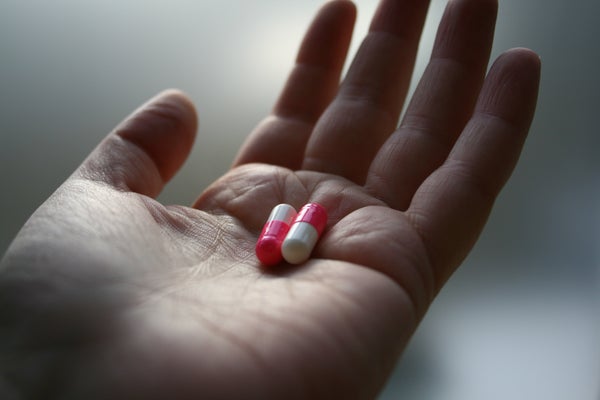February 6, 2024
5 min read
Tianeptine, an addictive drug at high doses, is being sold as a dietary supplement in gas stations and convenient stores. But such products could be contaminated with metals, microorganisms or other undisclosed drugs
Tianeptine is sold in the US under many brand names, but typically the pills are red and white or just red.
The following essay is reprinted with permission from ![]() The Conversation, an online publication covering the latest research.
The Conversation, an online publication covering the latest research.
The Food and Drug Administration is upping the urgency of its warnings for consumers to avoid purchasing or consuming tianeptine – commonly called “gas station heroin” – a synthetic drug typically sold in tablet or powder form and available for purchase online as well as in convenience stores, gas stations and smoke shops. It is the active ingredient in products such as Neptune’s Fix, Za Za Red and Tianaa.
Tianeptine, which is approved in some countries as a prescription drug for the treatment of depression, can mimic the actions of opioids like fentanyl. As a result, it carries similar risks of addiction, withdrawal and overdose potential. It can also lead to psychosis, seizures, kidney damage and death.
On supporting science journalism
If you’re enjoying this article, consider supporting our award-winning journalism by subscribing. By purchasing a subscription you are helping to ensure the future of impactful stories about the discoveries and ideas shaping our world today.
The FDA has been actively urging U.S. consumers to avoid the drug since 2022. But vendors continue to promote the drug as a dietary supplement, despite the fact that the FDA has explicitly stated that tianeptine “does not meet the statutory definition of a dietary ingredient and is an unsafe food additive.”
The Conversation asked pharmacist C. Michael White, who studies the harmful effects of substances of abuse and natural products, to explain the growing health…
Read the full article here







